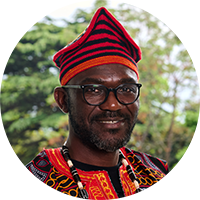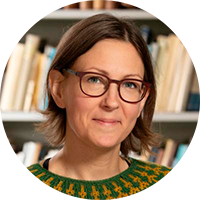Wednesday: Configuring research collaborations to address power imbalances in global-African ventures
Join us for this evening panel debate on how KTH is working with responsible internationalisation and our strategic work with partners in Africa reflecting on the 10 principles and 6 aspirations of The African Charter for Transformative Research Collaborations.
Enjoy a light meal
Join us before or after the event for food and refreshments! We will be serving light meals and beverages to give you a chance to connect with other participants before and after the session begins.
Where: Arenan, Teknikringen 1, KTH Campus.
Find a map on KTH Places
Date and time: 2 April, at 17:15-18:20.
The Charter is an Africa-centred framework for advancing a transformative mode of research collaborations that will serve to advance and uphold the continent’s place in the global production of scientific knowledge.
GSCJ Article on the Africa Charter.pdf (pdf 692 kB)
This panel debate will explore how research collaborations can be structured to address power imbalances in global-Africa HEI partnerships and the production of scientific knowledge. Central to the discussion will be the work KTH is doing on ethical aspects in our development of responsible internationalization guidelines and how we work with partners on the African continent. This will be complemented by insights from the African Charter for Transformative Research Collaborations, which outlines 10 key principles for reshaping these partnerships, including the need for mutual respect, equitable resource distribution, and a commitment to local knowledge systems.
The debate will also focus on the aspirations for policy change within higher education institutions, networks, funders, research assessment bodies, and science governance organizations, aiming to establish transformative collaboration as a best practice and standard in global research. Through these discussions, we will reflect on how to build more equitable, inclusive, and impactful research collaborations between Africa and the global research community.
Panelists
- Dr. Divine Fuh, Associate Professor at University of Cape Town, South Africa
- AnnaKarin Norling, Senior Research Advisor at SIDA
- Alberto Cagigi, Program Director of the IVI Europe Regional Office
- Professor Henrik Ernstson, KTH
- Dr Emma Elfversson, Associate Professor, Swedish Development Research Network
Moderator: Tina Murray, international advisor to the President, KTH
Divine Fuh
Taa Abognela Divine Fuh, from Makanikong in Bafut, Cameroon, is Director of the Institute for Humanities in Africa at the University of Cape Town where he is Associate Professor and Head of the Department of Anthropology. His research focuses on the politics of suffering and smiling, particularly on how urban youth seek ways of smiling in the midst of their suffering. He has done work in Cameroon, Botswana, Senegal and South Africa. His current work focuses on the political economy of African knowledge production; and on centring African epistemologies in Artificial Intelligence.
AnnaKarin Norling
Dr AnnaKarin Norling is Senior Research Advisor at Sida, the Swedish International Development Cooperation Agency. AnnaKarin has a background in Engineering Physics with a doctorate on energy efficient materials for renewable energy systems from Uppsala University. Having worked with research capacity building in development cooperation for more than 20 years, she has extensive experience and expertise in strengthening research systems at both national, regional and global level, including the connection to policy and innovation in countries.
Alberto Cagigi
Alberto Cagigi, Ph.D., is the Program Director of the IVI Europe Regional Office, where he oversees vaccine development projects, ensuring they meet the highest quality standards. He leads ongoing initiatives and identifies new opportunities aligned with IVI’s mission to discover, develop, and deliver safe, effective, and affordable vaccines for global public health. His contributions have spanned research as well as pre-clinical and clinical development of vaccines and immunotherapies targeting pathogens such as HIV, Ebola, Influenza, Rabies, and SARS-CoV-2.
Henrik Ernstson
Professor Henrik Ernstson is developing a situated approach to urban political ecology with a particular focus on southern and postcolonial urbanism. He mainly combines urban political ecology, urban studies, STS, social movement studies, and interdisciplinary research in urban and landscape ecology. He has extensive international collaboration with co-workers, practitioners, and urban artists in South Africa, Uganda, Nairobi, Angola, the UK, Italy, the USA and Sweden, and he has led various interdisciplinary research groups with studies in Cape Town, New Orleans, Stockholm, Kampala and Luanda.
Emma Elfversson
Emma Elfversson is an Associate Professor at the Department of Government, Uppsala University. Her research focuses on ethnic politics, communal conflict, and the role of state and non-state actors in conflict resolution, with a particular emphasis on urban-rural dynamics in sub-Saharan Africa. In addition to her academic roles, Dr. Elfversson serves as the Programme Director of the Swedish Development Research Network (SweDev), where she facilitates discussions on development research and policy.
Tina Murray
Since 1992, Christina Murray has been working with matters related to internationalisation at KTH. In her present position as chief international advisor to the president, which she has held since 2017, she provides strategic support and advice to the KTH management on international matters. This includes managing the initiation of ventures with certain selected partner universities and regions as well as leading and coordinating various international events on behalf of the president, deputy president and vice presidents at KTH






